
Nukufetau: A Hidden Paradise in Tuvalu
Nukufetau is a stunning coral atoll in the island nation of Tuvalu. This serene destination features crystal-clear lagoons, vibrant marine life, and pristine beaches. Visitors can enjoy a peaceful escape from the hustle and bustle of city life while experiencing the local culture and hospitality. The atoll is made up of 33 islets, each with its own unique charm. Snorkeling and diving enthusiasts will find the underwater world teeming with colorful fish and coral formations. The calm waters are perfect for swimming and kayaking, offering endless opportunities for relaxation and adventure. Nukufetau is also rich in history. Visitors can explore traditional Polynesian meeting houses, known as 'falekaupule,' and learn about the island's past. The local community is friendly and welcoming, making it easy for tourists to immerse themselves in the island's way of life. Whether you are looking to unwind on the beach, explore the marine life, or learn about the local culture, Nukufetau offers a unique and unforgettable experience.
Local tips in Nukufetau
- Bring reef-safe sunscreen to protect the delicate marine ecosystem.
- Respect local customs and dress modestly, especially when visiting villages.
- Carry cash as there are limited banking facilities on the island.
- Plan your visit around local festivals to experience traditional music and dance.
- Stay hydrated and bring your own reusable water bottle to reduce plastic waste.
Nukufetau: A Hidden Paradise in Tuvalu
Nukufetau is a stunning coral atoll in the island nation of Tuvalu. This serene destination features crystal-clear lagoons, vibrant marine life, and pristine beaches. Visitors can enjoy a peaceful escape from the hustle and bustle of city life while experiencing the local culture and hospitality. The atoll is made up of 33 islets, each with its own unique charm. Snorkeling and diving enthusiasts will find the underwater world teeming with colorful fish and coral formations. The calm waters are perfect for swimming and kayaking, offering endless opportunities for relaxation and adventure. Nukufetau is also rich in history. Visitors can explore traditional Polynesian meeting houses, known as 'falekaupule,' and learn about the island's past. The local community is friendly and welcoming, making it easy for tourists to immerse themselves in the island's way of life. Whether you are looking to unwind on the beach, explore the marine life, or learn about the local culture, Nukufetau offers a unique and unforgettable experience.
When is the best time to go to Nukufetau?
Iconic landmarks you can’t miss
Funafuti International Airport
Experience the serene charm of Funafuti International Airport, your gateway to the idyllic islands of Tuvalu, where adventure awaits in every corner.
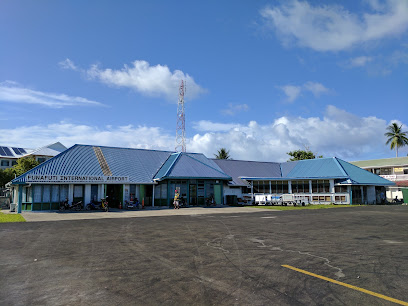
Funafuti
Discover the tranquil beauty of Funafuti, an atoll in Tuvalu, where stunning beaches and vibrant coral reefs await every traveler.
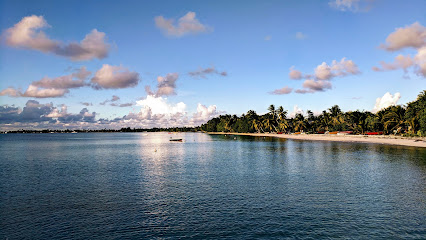
Afelita’s Island Resort
Experience tranquility at Afelita’s Island Resort, where stunning beaches meet lush landscapes in the heart of Tuvalu's natural beauty.
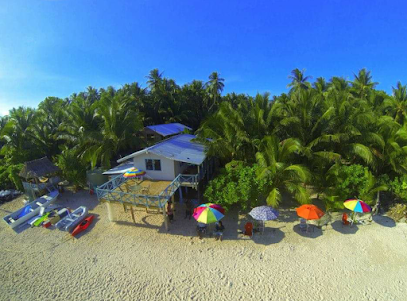
Filamona Lodge
Discover the serene beauty of Tuvalu at Filamona Lodge, where comfort meets nature for an unforgettable island getaway.

Kingdom Hall of Jehovah's Witnesses Tuvalu
Explore the spiritual heart of Tuvalu at the Kingdom Hall of Jehovah's Witnesses, a place of community and faith in serene Vaiaku.
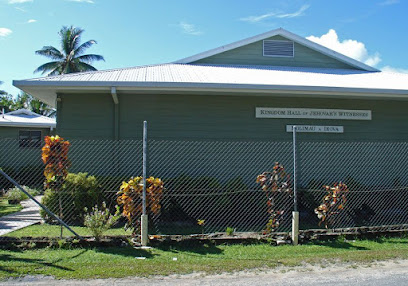
Monument to the Friendship between Nukufetau and Nanumea
Discover the Monument to the Friendship between Nukufetau and Nanumea, a meaningful historical landmark celebrating cultural bonds in Tuvalu.
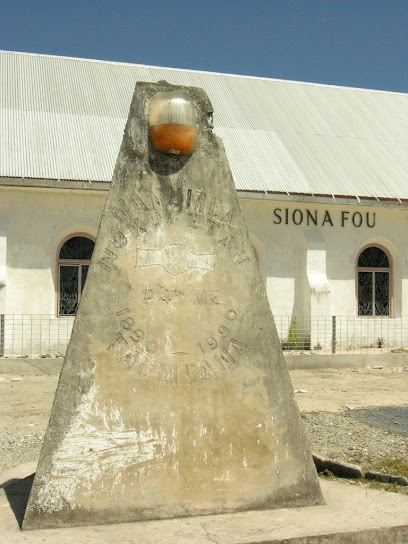
Tepuka
Explore the serene beauty of Tepuka Island in Tuvalu, where pristine beaches and vibrant marine life create an unforgettable tropical paradise.
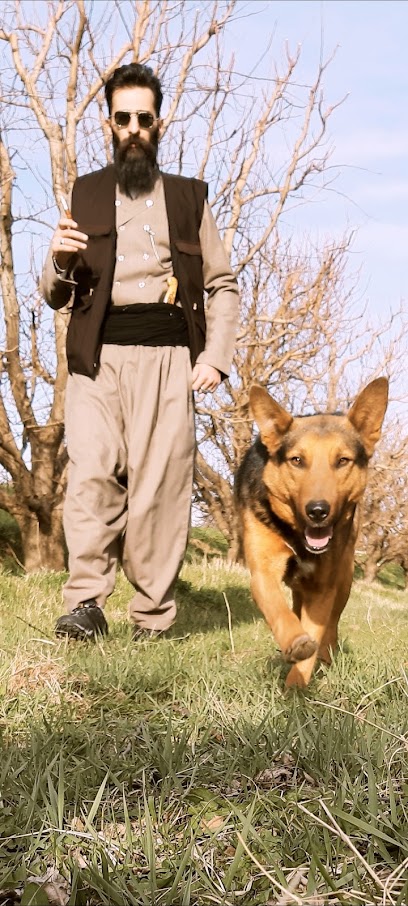
Tuvalu Women’s Handicraft Centre
Explore the rich cultural heritage of Tuvalu through handcrafted artistry at the Women's Handicraft Centre, a unique ethnographic museum experience.
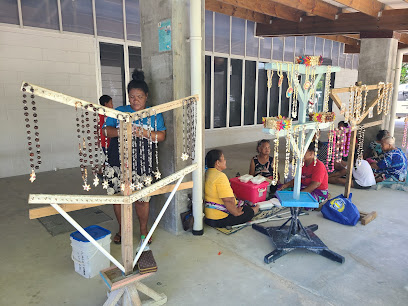
Funafuti Conservation Area
Explore Funafuti Conservation Area – a paradise of turquoise waters, vibrant marine life, and breathtaking landscapes in the heart of Tuvalu.

Tuvellice Beach
Discover the serene beauty of Tuvellice Beach, a tranquil paradise in Tuvalu, where pristine sands meet crystal-clear waters for an unforgettable escape.

Unmissable attractions to see
Monument to the Friendship between Nukufetau and Nanumea
Explore the Monument to the Friendship between Nukufetau and Nanumea – a cultural landmark celebrating unity in the heart of Tuvalu.
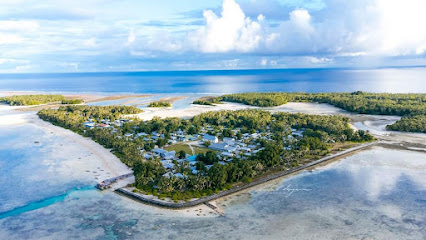
Tuvellice Beach
Explore the serene beauty of Tuvellice Beach in Vaiaku, Tuvalu, a hidden gem with pristine sands and clear waters perfect for relaxation and adventure.

Essential places to dine
Funafuti Lagoon Hotel
Experience serene stays and breathtaking lagoon views at Funafuti Lagoon Hotel, your gateway to exploring Tuvalu's natural beauty.

Blue Ocean Restaurant
Experience authentic Tuvaluan cuisine with stunning ocean views at Blue Ocean Restaurant in Vaiaku.
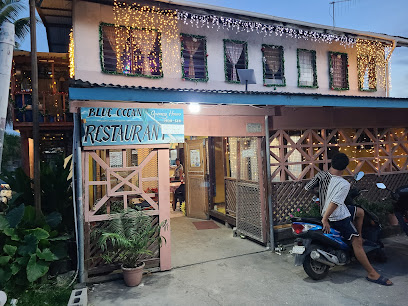
Fripay BBQ
Experience the rich flavors of Tuvalu at Fripay BBQ, where delicious grilled meats meet warm hospitality.
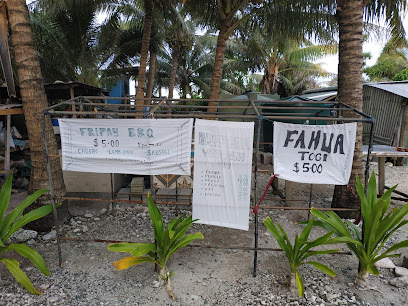
Filamona Lodge
Discover comfort and local charm at Filamona Lodge - your perfect base for exploring Tuvalu's stunning landscapes and rich culture.

Esfam Lodge
Experience authentic hospitality and local cuisine at Esfam Lodge in Funafuti, your gateway to exploring the beauty of Tuvalu.

Chez Imogan
Experience the vibrant nightlife of Tuvalu at Chez Imogan - where tropical drinks meet local culture in a cozy setting.
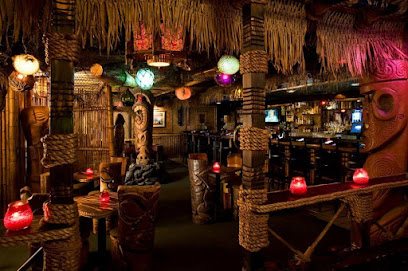
Sue's Kitchen
Experience the authentic taste of Tuvalu at Sue's Kitchen – where local flavors meet warm hospitality.
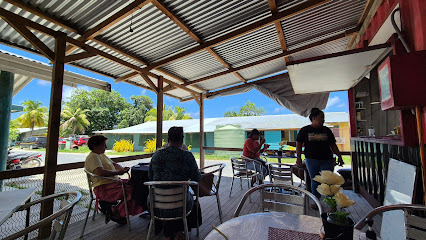
Pizzeria da casetti
Savor authentic pizzas made with fresh local ingredients at Pizzeria da Casetti in Vaitupu, Tuvalu—a culinary gem worth exploring.

Maneaba
Experience authentic Tuvaluan culture at Maneaba, a vibrant community center where tradition meets warmth.

Nangs
Discover authentic Tuvaluan cuisine at Nangs in Vaiaku – where fresh ingredients meet local flavors for an unforgettable dining experience.
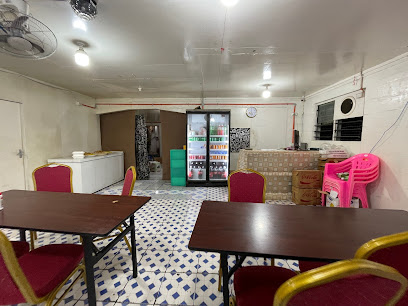
Tuvellice Beach
Experience paradise at Tuvellice Beach in Vaiaku - where pristine sands meet azure waters for unforgettable moments in Tuvalu.

Markets, malls and hidden boutiques
Funafuti International Airport
Explore the beauty of Tuvalu starting from Funafuti International Airport – your gateway to an unforgettable Pacific adventure.
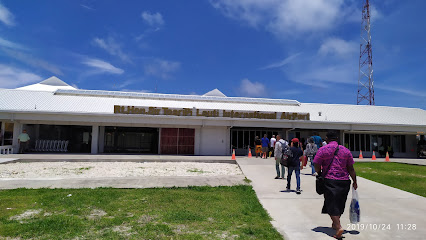
Funafuti Lagoon Hotel
Discover the tranquil paradise of Funafuti Lagoon Hotel, where modern comforts meet the enchanting beauty of Tuvalu's stunning lagoons.

Fripay BBQ
Experience the rich flavors of authentic barbecue at Fripay BBQ in Vaiaku, Tuvalu, where culinary tradition meets mouthwatering dishes.
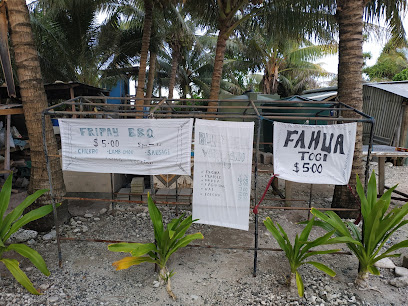
Jimmy Store
Discover the largest supermarket in Tuvalu, where local flavors meet everyday essentials in the heart of Vaiaku.
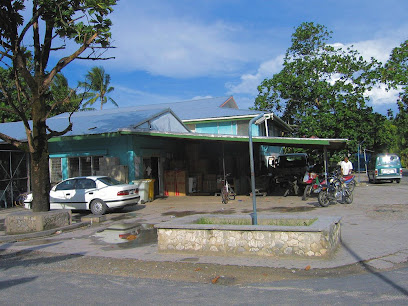
Filamona Lodge
Discover the serene beauty of Funafuti at Filamona Lodge, a tranquil hotel offering comfort and local charm in the heart of Tuvalu.

The Twins Auto Motor Repair
Discover reliable motorcycle repair services at The Twins Auto Motor Repair in Vaiaku, ensuring your Tuvalu adventure remains hassle-free and enjoyable.
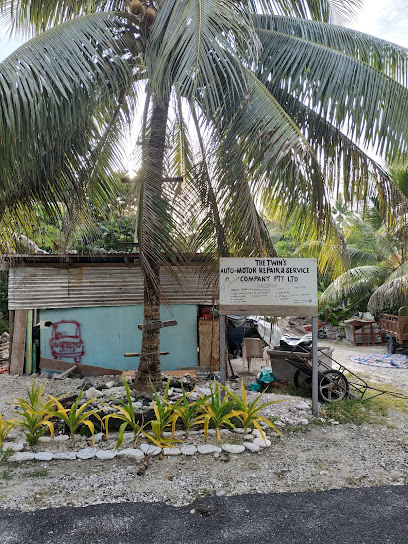
Tuvalu Women’s Handicraft Centre
Experience the vibrant artistry and cultural heritage of Tuvalu at the Women's Handicraft Centre, showcasing exquisite handmade crafts by local artisans.
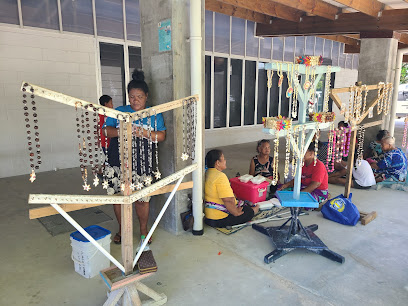
Tuvellice Beach
Discover the untouched beauty of Tuvellice Beach in Tuvalu, where azure waters and white sands create a serene escape for every traveler.

Kavatoetoe Mini Mart
Discover unique local goods and essentials at Kavatoetoe Mini Mart in Vaiaku, the heart of Tuvalu's vibrant culture.
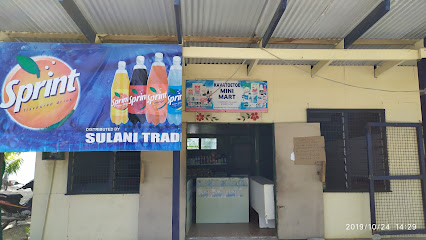
Sefatu Store
Discover local culture and essentials at Sefatu Store in Vaiaku, Tuvalu, your go-to convenience stop for travelers.
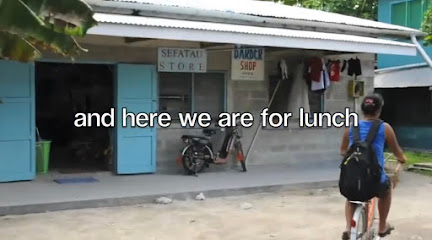
Essential bars & hidden hideouts
Blue Ocean Restaurant
Discover the culinary delights of Tuvalu at Blue Ocean Restaurant, where fresh seafood meets stunning ocean views for an unforgettable dining experience.
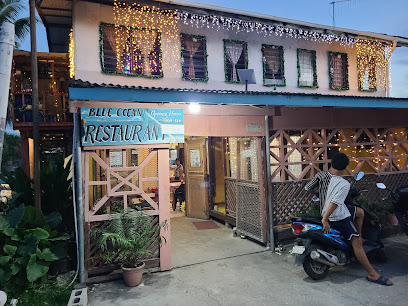
Afelita’s Island Resort
Discover tranquility and natural beauty at Afelita’s Island Resort, a tropical paradise in Tuvalu perfect for relaxation and adventure.
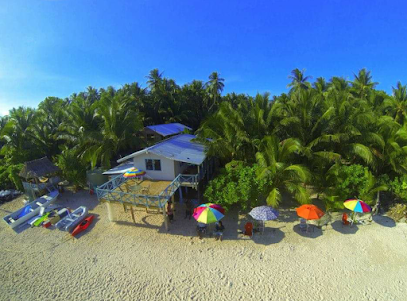
Fripay BBQ
Discover the authentic taste of Tuvalu at Fripay BBQ, where local flavors meet the art of barbecue in a vibrant setting.
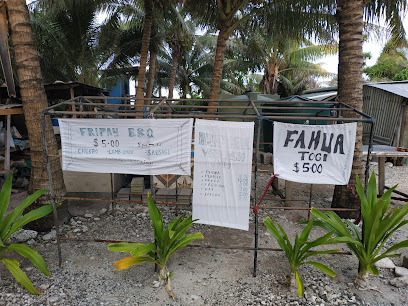
Chez Imogan
Discover the vibrant atmosphere and refreshing drinks at Chez Imogan, a must-visit bar in Amatuku, Tuvalu.
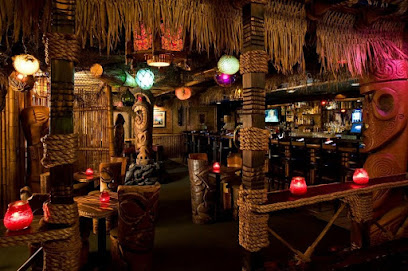
Matagigali Bar
Discover the lively atmosphere of Matagigali Bar in Vaiaku, the ultimate destination for nightlife and socializing in Tuvalu.
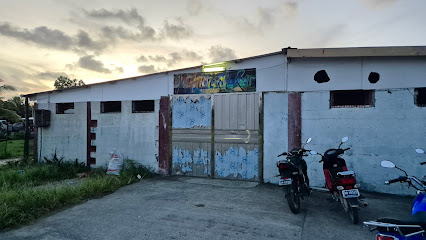
Local Phrases
-
- HelloTalofa
[Tah-loh-fah] - GoodbyeTofa
[Toh-fah] - YesIo
[Ee-oh] - NoLeai
[Leh-eye] - Please/You're welcomeFakafetai
[Fah-kah-feh-tie] - Thank youFakafetai
[Fah-kah-feh-tie] - Excuse me/SorryTulou
[Too-loh] - How are you?Alofa atu?
[Ah-loh-fah ah-too] - Fine. And you?Sa matangi. O a koe?
[Sah mah-tahng-ee. Oh ah koh-eh?] - Do you speak English?E fai teleaga e te galue i le fa'ailoa a le inglese?
[Eh fah-ee teh-leh-ah-gah eh teh gah-loo-eh ee leh fah-ah-ee-loh-ah ah leh een-gleh-seh?] - I don't understandE le mafai ona ou te malamalama
[Eh leh mah-fah-ee oh-nah oh-teh mah-lah-mah-lah-mah]
- HelloTalofa
-
- I'd like to see the menu, pleaseFa'amalie, ou te fia vaai le mea 'ai
[Fah-ah-mah-lee-eh, oh-teh fee-ah vah-ah-ee leh meh-ah ah-ee] - I don't eat meatE le auai i le kai
[Eh leh ah-oo-eye ee leh kah-ee] - Cheers!Manuia!
[Mah-noo-ee-ah!] - I would like to pay, pleaseFa'amalie, ou te fia totogi
[Fah-ah-mah-lee-eh, oh-teh fee-ah toh-toh-gee]
- I'd like to see the menu, pleaseFa'amalie, ou te fia vaai le mea 'ai
-
- Help!Fesoasoani!
[Feh-soh-ah-soh-ah-nee!] - Go away!Alu i le taeao!
[Ah-loo ee leh tah-eh-ah-oh!] - Call the Police!Telefoni i le Fa'amasinoga!
[Teh-leh-foh-nee ee leh Fah-ah-mah-see-noh-gah!] - Call a doctor!Telefoni i le Foma'i!
[Teh-leh-foh-nee ee leh Foh-mah-ee!] - I'm lostO'u te iloa
[Oh-oo teh ee-loh-ah] - I'm illO'u te malosi
[Oh-oo teh mah-loh-see]
- Help!Fesoasoani!
-
- I'd like to buy...Ou te fia fa'atau...
[Oh-teh fee-ah fah-ah-tah-oo...] - I'm just lookingO'u te vaai fa'apeleti
[Oh-oo teh vah-ah-ee fah-ah-peh-leh-tee] - How much is it?E fia fa'apeleti?
[Eh fee-ah fah-ah-peh-leh-tee?] - That's too expensiveO lelei lava
[Oh leh-leh-ee lah-vah] - Can you lower the price?E mafai ona tu'u i le tau?
[Eh mah-fah-ee oh-nah too-oo ee leh tah-oo?]
- I'd like to buy...Ou te fia fa'atau...
-
- What time is it?O le a le taimi?
[Oh leh ah leh tah-ee-mee?] - It's one o'clockO le tasi i le taimi
[Oh leh tah-see ee leh tah-ee-mee] - Half past (10)I le itu
[Ee leh ee-too] - MorningTaeao
[Tah-eh-ah-oh] - AfternoonAfiafi
[Ah-fee-ah-fee] - EveningTotonu
[Toh-toh-noo] - YesterdayAnanafi
[Ah-nah-nah-fee] - TodayAso nei
[Ah-soh neh-ee] - TomorrowAso taeao
[Ah-soh tah-eh-ah-oh] - 1Tasi
[Tah-see] - 2Lua
[Loo-ah] - 3Tolu
[Toh-loo] - 4Fa
[Fah] - 5Lima
[Lee-mah] - 6Ono
[Oh-noh] - 7Fitu
[Fee-too] - 8Valu
[Vah-loo] - 9Iva
[Ee-vah] - 10Sefulu
[Seh-foo-loo]
- What time is it?O le a le taimi?
-
- Where's a/the...?O fea...
[Oh feh-ah...] - What's the address?O le fa'amao?
[Oh leh fah-ah-mah-oh?] - Can you show me (on the map)?E mafai ona fa'atau ia te a'u (i le mapa)?
[Eh mah-fah-ee oh-nah fah-ah-tah-oo ee-ah teh ah-oo (ee leh mah-pah)?] - When's the next (bus)?O le a le tau (autalavou)?
[Oh leh ah leh tah-oo (ow-tah-lah-voh-oo)?] - A ticket (to ....)Fa'atau o se lipoti (i ....)
[Fah-ah-tah-oo oh seh lee-poh-tee (ee ....)]
- Where's a/the...?O fea...
History of Nukufetau
-
Nukufetau, one of the islands in Tuvalu, has a rich history dating back to its early Polynesian settlers. These early inhabitants were skilled navigators and fishermen who relied on the ocean for sustenance. Archaeological evidence suggests that Nukufetau was settled by Polynesians around 1000 AD, who brought with them their unique culture, language, and traditions.
-
Nukufetau first came into contact with Europeans in the 19th century. The island was sighted by Spanish explorer Álvaro de Mendaña de Neira in 1568, but it wasn't until the 19th century that more sustained interactions occurred. The arrival of European missionaries and traders had a profound impact on the local culture and economy, introducing new religious beliefs and trade goods.
-
During World War II, Nukufetau played a strategic role in the Pacific theater. In 1943, Allied forces established an airfield on the island as part of their efforts to counter Japanese advances. This airstrip was crucial for the staging of operations in the region. The presence of the military brought significant changes to the island's infrastructure and daily life, with many locals being employed to assist in the war effort.
-
After World War II, Nukufetau underwent a period of reconstruction and modernization. The airfield built during the war was repurposed for civilian use, facilitating better connectivity with the outside world. Efforts were made to rebuild and improve local infrastructure, including schools, healthcare facilities, and communication networks, which helped to enhance the quality of life for the island's residents.
-
Tuvalu, including Nukufetau, gained independence from British colonial rule on October 1, 1978. This was a pivotal moment in the island's history, as it marked the beginning of self-governance and the establishment of a national identity. The people of Nukufetau, like other Tuvaluans, took pride in their newfound autonomy, and efforts were made to preserve and promote their cultural heritage and traditions.
-
Nukufetau is known for its vibrant culture and traditions. The island's residents continue to practice traditional Polynesian customs, including dance, music, and crafts. The local community places a strong emphasis on communal living and mutual support, which are core values in Tuvaluan society. The preservation of traditional knowledge and skills is seen as essential to maintaining Nukufetau's unique cultural identity.
-
Like many low-lying islands in the Pacific, Nukufetau faces significant environmental challenges due to climate change. Rising sea levels and increased frequency of severe weather events pose a threat to the island's infrastructure and way of life. Efforts are being made at both the local and international levels to address these challenges through sustainable development practices and climate change mitigation initiatives.
Nukufetau Essentials
-
Nukufetau, part of the island nation of Tuvalu, is accessible mainly by air. The nearest airport is Funafuti International Airport, located on the main island of Funafuti. From there, you can take a domestic flight operated by Air Tuvalu to Nukufetau. Alternatively, you can reach Nukufetau by sea via inter-island ferries, which are less frequent and can be affected by weather conditions.
-
Nukufetau is a small atoll, and most destinations are within walking distance. For longer trips or if you prefer convenience, bicycles and motorbikes are available for rent. There are also small boats that can be hired for inter-island trips within the atoll. Public transport options are minimal, so planning your transportation in advance is advisable.
-
The official currency of Tuvalu is the Australian Dollar (AUD). Cash is the primary form of payment, as credit cards are rarely accepted outside of the main island, Funafuti. It is advisable to carry sufficient cash for your stay, as ATMs are not available on Nukufetau. Ensure you withdraw enough money while in Funafuti or before arriving in Tuvalu.
-
Nukufetau is generally a very safe destination with low crime rates. However, it is always wise to take standard precautions. Keep your valuables secure and avoid leaving them unattended. There are no specific high-crime areas targeting tourists, but staying vigilant and aware of your surroundings is always a good practice.
-
In case of an emergency, contact the local authorities or community leaders. While there is no dedicated emergency number, the local police and medical facilities on Funafuti can be reached for serious concerns. It is crucial to have travel insurance that covers medical emergencies. Basic first aid supplies and medications should be carried, as local medical facilities are limited.
-
Fashion: Do dress modestly, especially when visiting villages and religious sites. Avoid wearing revealing clothing. Religion: Do show respect for local customs and religious practices. Always ask for permission before entering church buildings. Public Transport: Do be courteous and respectful towards local transport operators. Don't expect regular schedules, as transport can be informal. Greetings: Do greet locals with a friendly wave or a handshake. A smile goes a long way in showing respect and friendliness. Eating & Drinking: Do try local foods and accept food offerings graciously. Don't waste food, as resources can be scarce on the island.
-
To experience Nukufetau like a local, engage with the community and participate in traditional activities such as fishing or weaving. Visiting during local festivals can provide a deeper insight into the culture. Respect the natural environment by not littering and participating in local conservation efforts. Take time to learn a few phrases in Tuvaluan; the effort is greatly appreciated by the locals.
Nearby Cities to Nukufetau
-
Things To Do in Funafuti
-
Things To Do in Vaiaku
-
Things To Do in Fongafale
-
Things To Do in Rakiraki
-
Things To Do in Lautoka
-
Things To Do in Levuka
-
Things To Do in Labasa
-
Things To Do in Ba
-
Things To Do in Savusavu
-
Things To Do in Nadi
-
Things To Do in Nausori
-
Things To Do in Suva
-
Things To Do in Falealupo
-
Things To Do in Sigatoka
-
Things To Do in Asau




